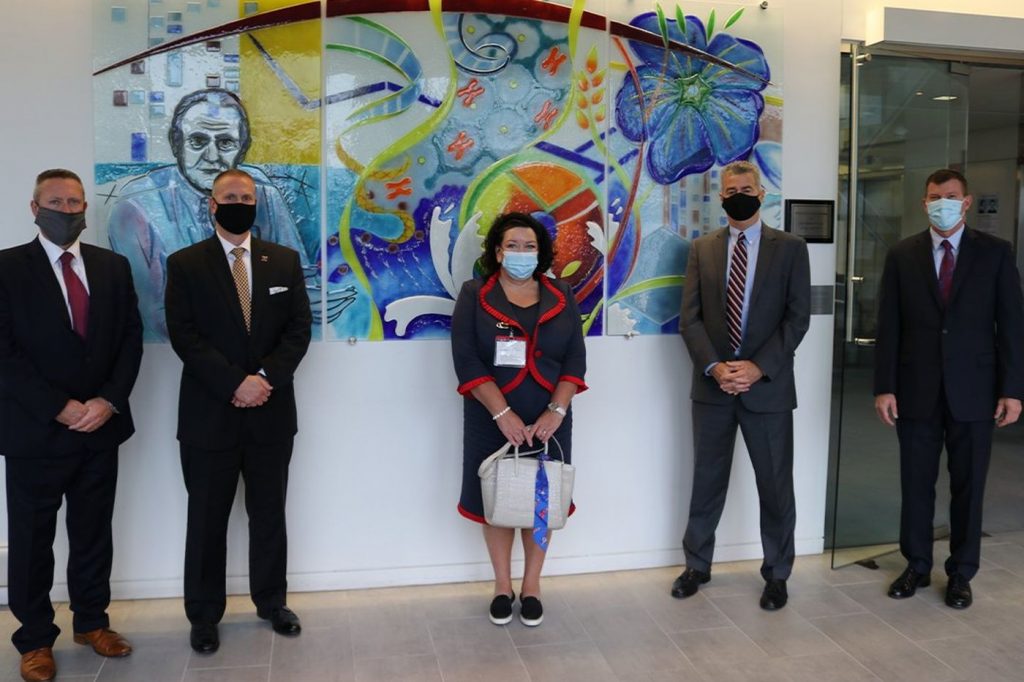A Souderton firm played a key role in testing Pfizer’s COVID-19 vaccine
Philadelphia Inquirer
While the fanfare surrounding Pfizer’s recently approved COVID-19 vaccine resounds throughout pandemic-stricken America, a Souderton company that played a key role in its journey from test tube to approval is helping scores of other firms in their quests for successful encores.
Since early summer, Almac has been at the heart of the far-flung and intense search for drugs to combat the coronavirus, facilitating trials for the COVID-related products of at least 80 pharmaceutical and bio-tech companies, most notably the Pfizer vaccine that on Dec. 11 won emergency-use authorization from the U.S. Food and Drug Administration.
“Aiding companies with trials like these is what we do,” said Rich Segiel, Almac’s North American VP for business development. “We have a client base of 600 to 700 companies whose trials usually are for drugs that fight diseases like cancer, diabetes, or hepatitis. But when this pandemic hit, a lot of these companies started looking around at drugs that might be used as either a COVID therapeutic or a vaccine. We had probably over 200 of those specific requests and actively engaged with about 80 companies.”
Northern Ireland-based Almac employs 5,600 people at 18 locations in the U.S., Europe, and Asia, including 1,000 at its North American headquarters in Souderton, and another 300 total at facilities in Audubon and Lansdale. For its pharmaceutical and bio-tech clients, it sorts, packages, labels, stores, and distributes products involved in clinical trials. It also provides them wide-ranging assistance in the drug development process.
“The only two things we don’t have,” said Segiel, “are cages and beds. We don’t do animal testing and we don’t have patients in a hospital setting where we’re doing the dosing. We’re getting the drug to the sites and collecting the data, but we’re not actually doing the administration.”
The Pfizer COVID vaccine that Almac handled, for example, had to be tested on 30,000-plus patients at 120 sites in six nations, a process so unusually extensive that the company referred to it as a “mega-trial.” The doses had to be properly blinded since the test subjects couldn’t know whether they were being administered the real drug or a placebo. And because the trial was international in scope, labeling had to be country- and language-specific.
“We’ve done trials of this size before, but usually over a couple of years, not in such a small time frame,” said Segiel. “It was quite a challenging endeavor to put the resources together to get all those shipments out in time.”
Bulk batches of Pfizer’s unlabeled vaccine began arriving at the Souderton facility in June. The liquid was dispersed into tens of thousands of individual vials that, along with some that contained placebos, were labeled and included in the finished testing kits. Then it all had to be stored in extreme subfreezing conditions until shipped.
“None of that is necessarily different from what we normally do. The big difference with COVID is all the attention it’s gotten and the speed that’s required,” said Mark Rohlfing, Almac’s vice president for operations. “To have 30,000 patients dosed in three months is a very aggressive study. And in all these trials, the sponsors are trying to get through them as quickly as possible while still adhering to good clinical and manufacturing practices. So we’ve had to make sure we had enough brains and bodies here to do the work.”
As a result, for the COVID products, the clinical-testing process has been compressed into four or five months. And Almac employees have labored around the clock.
“It’s surreal to know that I have participated in something that is part of global history,” said Stephanie Henderson, a senior distribution associate. “It fills me with a great sense of pride.”
And because many vaccines are biologically based and require refrigeration — Pfizer’s, for example, had to be kept at -70 Celsius (-94 F) or below — Almac had to increase its cold-storage capacity and some of its company’s 1,300 employees here had to spend their entire shifts in deep-freeze units.
To maintain the proper temperatures for vaccines being dispatched to various corners of the globe, Almac employs shipping pods that it developed three years ago. Those pods contain phase-change material — a more advanced version of the chemically based products used to keep lunchbox items hot or cold.
“That minus-70 [Celsius] needed for the Pfizer vaccine is not an unusual temperature for us,” said Rohlfing. “The phase-change material is very effective. It keeps the drug at the correct temperature for four or five days until it gets where it needs to go.”


